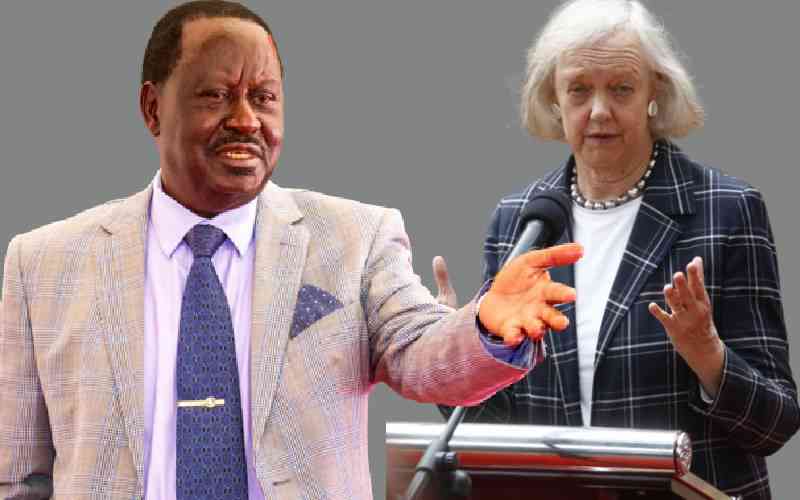
How times change! It would have been inconceivable to imagine Raila Odinga, the famed father of democracy, attacking a United States envoy for applauding the conduct of a general election in Kenya. But the tide has changed.
Raila's criticism of Ambassador Meg Whitman for endorsing last year's elections as "the freest, fairest and most credible" has divided many but likely surprised few. The Azimio leader has had a complex relationship with the Western nation, which has evolved and is characterised as a mix of cooperation, criticism, and occasional disappointment.